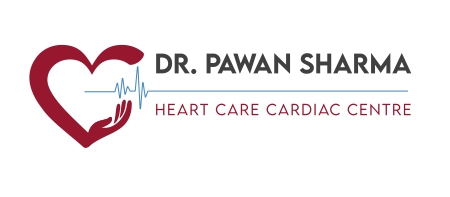Overview
Hypertension refers to high blood pressure which may lead to many other symptoms. Blood pressure is the measurement of the force against the walls of your arteries as your heart pumps blood through your body. Hypertension is known to be a cause of chronic kidney disease.
Blood pressure is determined by the amount of blood your heart pumps and the amount of resistance to blood flow in your arteries. The more blood your heart pumps and the narrower your artery, the higher is your blood pressure. Higher than normal blood pressure is called hypertension and is a key risk factor for both heart disease and stroke.
- Normal blood pressure is when your blood pressure is lower than 120/80 mmHg.
- High blood pressure (hypertension) is when your blood pressure is 140/90 mmHg or above.
- If your blood pressure numbers are 120/80 or higher, but below 140/90, it is called pre-hypertension.
High Blood Pressure Symptoms
In today’s hectic lifestyle, a large number of people are suffering from high blood pressure. Most of the time, high blood pressure goes untreated and damages arteries and vital organs throughout the body. This is why it is called the “silent killer”.
There is no guarantee that a person with hypertension will present any high bp symptoms of the condition. About 33% of people actually do not know that they have high blood pressure, and this ignorance can last for years. For this reason, it is advisable to undergo periodic blood pressure screenings even when no hypertension symptoms are present. Some of the most common blood pressure symptoms are:
- Severe headaches
- Dizziness
- Blurred Vision
- Fatigue or confusion
- Irregular heartbeat
- Blood in the urine
- Nausea and vomiting
- Chest paint and shortness of breath
Causes of High Blood Pressure
In most of the cases, the hypertension causes is not known and is often referred to as primary or essential hypertension. However, some major causes of sudden high blood pressure include:
- Age – The older a person is, the greater the possibility that he or she will develop high blood pressure. This is due to arteriosclerosis, or “hardening of the arteries.”
- Family History – The problem of high blood pressure tends to run in families.
- Obesity – Being overweight increases the risk of high blood pressure. Health care professionals recommend that all people with obesity and high blood pressure lose weight until they are within 15% of their healthy body weight.
- Alcohol Consumption – Drinking more than two drinks of alcohol per day increases the chances of high blood pressure.
- Medications – Certain drugs, such as amphetamines (stimulants), diet pills, and pseudoephedrine tend to raise blood pressure.
- Young patients can have high BP due to kidney disease.
- Lack of exercise.
Hypertension Treatment
The best high blood pressure treatment is to make healthy changes to your lifestyle. One needs to take a stepwise approach beginning with diet, weight loss, and lifestyle changes along with medications as required.
- Medications – if you occasionally feel that you have elevated high blood pressure, your doctor would suggest few medicines that will bring down the blood pressure to normal.
- Avoid tobacco smoke
- Maintain a healthy weight
- Take a healthy diet
- Limit your salt intake
- Do regular physical activity
At Max Hospital, one of the best heart hospital in Delhi, we have the best heart specialists in India who specialize in treating hypertension symptoms, through medications and consultations.
Health & Wellness Coaching for High BP
Health and wellness coaching will facilitate you to understand the root cause of the problem and create a roadmap that is self-directive and driven by intrinsic motivation to make lifestyle behavioral changes so that you can have a better quality of life. At your Health & Wellness Coaching you can expect to:
- Get a personalized body evaluation
- Get a personalized wellness evaluation
- Get Information about your nutritional intake
- Learn the basics of nutrition based on nourishment and not starvation that is specific to your health concerns.
- Get a personalized movement plan based on your unique needs and fitness levels
- Learn specific skills that will improve your quality of life
- Learn stress management skills
- Promote Behavior Change
- Assist with Emotional Impact of Chronic Illness
- Encourage Participation in Disease Prevention
- Partner to Facilitate Overall Health Improvement

